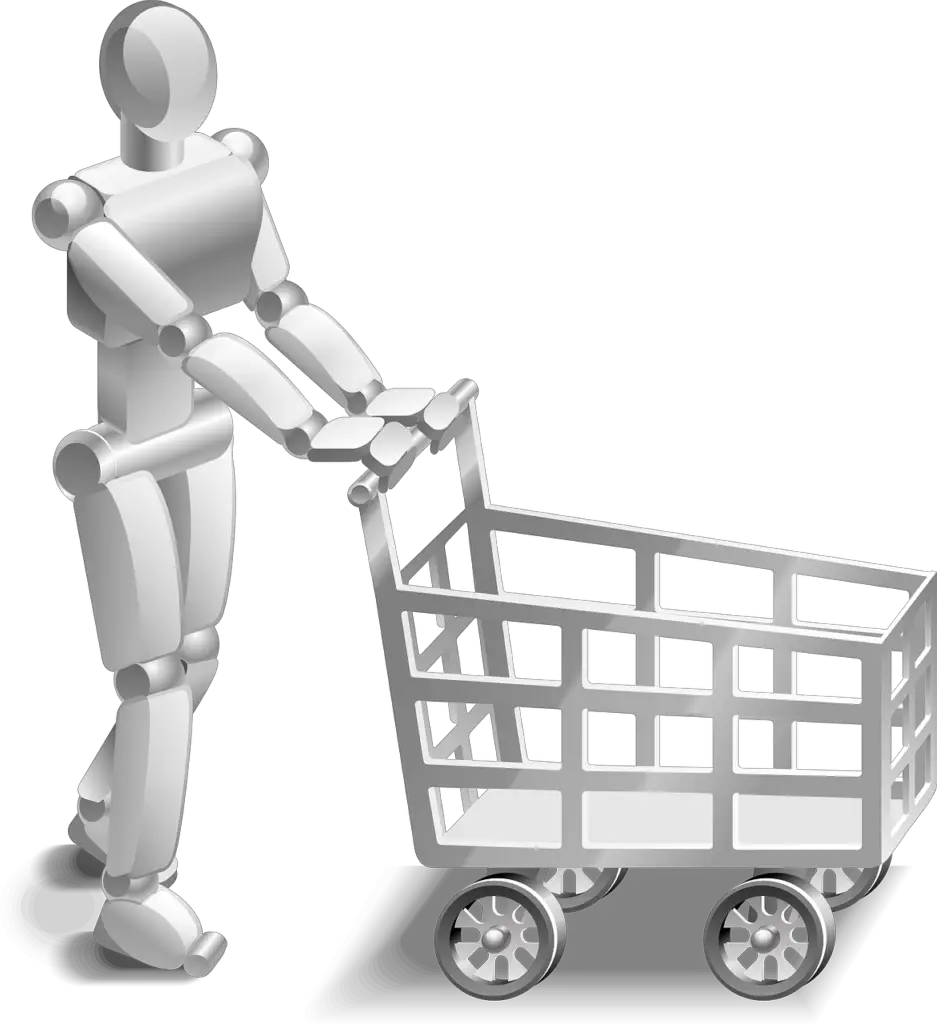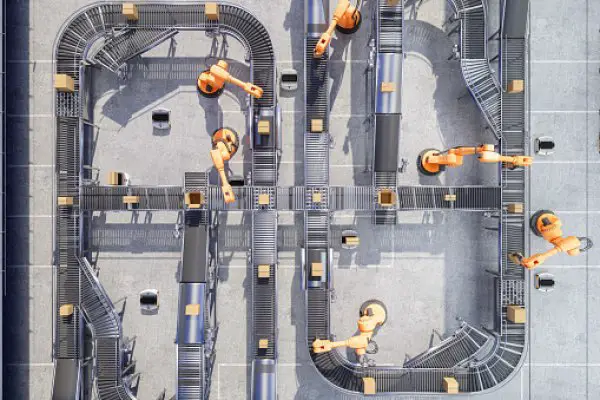Artificial intelligence (AI) has been a major topic of discussion in recent years, and its impact on the job market has been a concern for many. With the rapid advances in AI and automation technologies, there are concerns that these technologies will significantly disrupt labor markets. While AI and automation can augment the productivity of some workers, they can replace the work done by others and will likely transform almost all occupations to some degree.
According to a report by the World Economic Forum, it is estimated that by 2025, the amount of work done by machines will jump from 29% to more than 50%. This rapid shift will accompany new labor-market demands that may result in more rather than fewer, jobs. However, as the report notes, these predictions “provide grounds for both optimism and caution.” AI will significantly impact the job market, but the extent of that impact and whether it will be positive or negative remains to be seen.
As AI technology advances, it is important to consider the potential consequences and prepare for the changes it will bring. While some jobs may be lost, new jobs will also be created. It is important to understand which jobs are most at risk and which are likely to grow in the coming years. By doing so, individuals and organizations can better prepare for the future of work in the era of AI.
The Impact Of Artificial Intelligence On The Job Market
Overview
Artificial intelligence (AI) is rapidly evolving, and its impact on the job market is becoming increasingly significant. While AI has the potential to transform industries and create new job opportunities, it also poses a threat to certain occupations and could displace human workers. The impact of AI on the job market is complex and multifaceted, with both positive and negative effects.
Positive Impacts Of AI On The Job Market
AI has the potential to transform industries and create new job opportunities. For example, AI can automate repetitive tasks, allowing human workers to focus on more complex and creative work. It can also improve efficiency and productivity, increasing production and economic growth. Furthermore, AI can help companies make better decisions by analyzing large amounts of data, leading to improved profitability and new business opportunities.
Negative Impacts Of AI On The Job Market
However, AI also threatens certain occupations and could displace human workers. For example, jobs that involve repetitive tasks, such as data entry and factory work, are at risk of being automated. Additionally, AI could replace white-collar jobs, such as managers and analysts, that involve routine decision-making and data analysis. This could disproportionately affect well-paid, better-educated workers, who face the most exposure to AI.
Retraining And Soft Skills
To mitigate the negative impacts of AI on the job market, retraining programs and a focus on developing soft skills will be essential. Soft skills, such as critical thinking and communication, are less likely to be automated and will become increasingly important in the future of work. Furthermore, training programs can help individuals acquire the skills needed for future jobs, such as data analysis and programming.
Limitations And Challenges
However, there are limitations to the ability of retraining programs to address the challenges posed by AI. For example, certain demographics, such as older workers and those with lower levels of education, may need help to adapt to the changing job market. Additionally, the growth of the gig economy and the rise of autonomous vehicles and chatbots could further complicate the job market and pose challenges for policymakers.
Overview
Artificial intelligence (AI) and machine learning (ML) have transformed the job market for several years. While these technologies can improve productivity and efficiency, they also have the potential to displace human workers and change the face of many industries.
According to a report by McKinsey, the average number of AI capabilities used by organizations has doubled from 1.9 in 2018 to 3.8 in 2022. Robotic process automation and computer vision have remained the most commonly deployed among these capabilities. This trend is expected to continue, with AI and automation transforming almost all occupations to some degree.
The impact of AI on the labor market has been a topic of much discussion and research. While some experts predict significant job displacement, others suggest new job opportunities will emerge. A Brookings study found that better-educated workers face the most exposure to AI-related job displacement.
The impact of AI on the job market is not limited to a particular industry or demographic. The O*NET database, which provides detailed information on job requirements and worker attributes, suggests that AI and automation are transforming job descriptions across various industries.
The growth of AI and automation has also led to a demand for new skills and training programs. Soft skills such as critical thinking and communication are becoming increasingly important, as are technical skills such as data analysis and programming. Companies and individuals are investing in reskilling and upskilling programs to meet the changing demands of the job market.
As AI and automation transform the job market, policymakers and businesses must consider the potential challenges and limitations. While these technologies can improve productivity and efficiency, they also have the potential to displace workers and create new inequalities. Finding a balance between technological advancement and the well-being of workers and communities is important.
Positive Impacts Of AI On The Job Market
Artificial Intelligence (AI) has had a significant impact on the job market, and while there are concerns about job displacement, there are also positive impacts to consider. This section will explore some of the positive impacts of AI on the job market.
Increased Efficiency And Productivity
AI has the potential to increase efficiency and productivity in various industries significantly. For example, AI-powered software can automate repetitive tasks such as data entry, freeing employees to focus on more critical thinking and creative tasks. This can lead to increased productivity and improved job satisfaction.
Furthermore, AI can help businesses make better decisions by analyzing vast data. This can lead to better-informed decisions and improved efficiency. AI can optimize production processes in the manufacturing industry, reducing waste and increasing output.
Creation Of New Job Opportunities
While there are concerns about job displacement, AI has also created new job opportunities. For example, developing and maintaining AI systems require skilled workers such as software developers and data analysts. Additionally, the growth of AI has led to the creation of new job descriptions, such as AI trainers and chatbot designers.
Moreover, AI has led to the growth of the gig economy, with companies like Uber and Lyft using AI algorithms to match drivers with riders. This has created new job opportunities for individuals who may not have otherwise been able to participate in the labor market.
Improved Safety And Working Conditions
AI has the potential to improve safety and working conditions in various industries. For example, in the healthcare industry, AI can assist doctors in diagnosing and treating patients, leading to improved patient outcomes. In the manufacturing industry, AI-powered robots can perform dangerous tasks, reducing the risk of injury to human workers.
Furthermore, AI can help companies identify potential safety hazards and take proactive measures to prevent accidents. This can improve working conditions and a safer work environment for employees.
Negative Impacts Of AI On The Job Market
Job Displacement And Loss
One of the major concerns regarding the impact of artificial intelligence on the job market is the displacement of workers. AI and automation technologies can potentially replace human workers in various industries, especially in jobs that involve repetitive tasks or manual labor. This can lead to significant job loss in affected industries, which can have far-reaching economic and social consequences.
According to a study by the Brookings Institution, workers in low-wage occupations, such as food service and retail, are at the highest risk of being displaced by AI and automation. However, even workers in high-skill, high-wage occupations, such as finance and healthcare, are not immune to the potential impact of AI on their jobs.
Skill Requirements And Retraining
As AI and automation technologies advance, they will likely change the skill requirements for many jobs. Workers who need to gain the necessary skills to adapt to these changes may find themselves at a disadvantage in the job market. This can lead to increased income inequality and social unrest.
To mitigate the negative impact of AI on the job market, there is a need for retraining programs that can help workers acquire the skills they need to remain competitive in the job market. However, the success of these programs depends on the availability of funding, the quality of training programs, and the ability of workers to adapt to new technologies and work environments.
Conclusion
In conclusion, while AI and automation technologies can potentially increase productivity and efficiency in various industries, they pose significant challenges to the job market. The negative impacts of AI on the job market, such as job displacement and changing skill requirements, need to be addressed through effective policies and programs that can help workers adapt to the changing job market.



